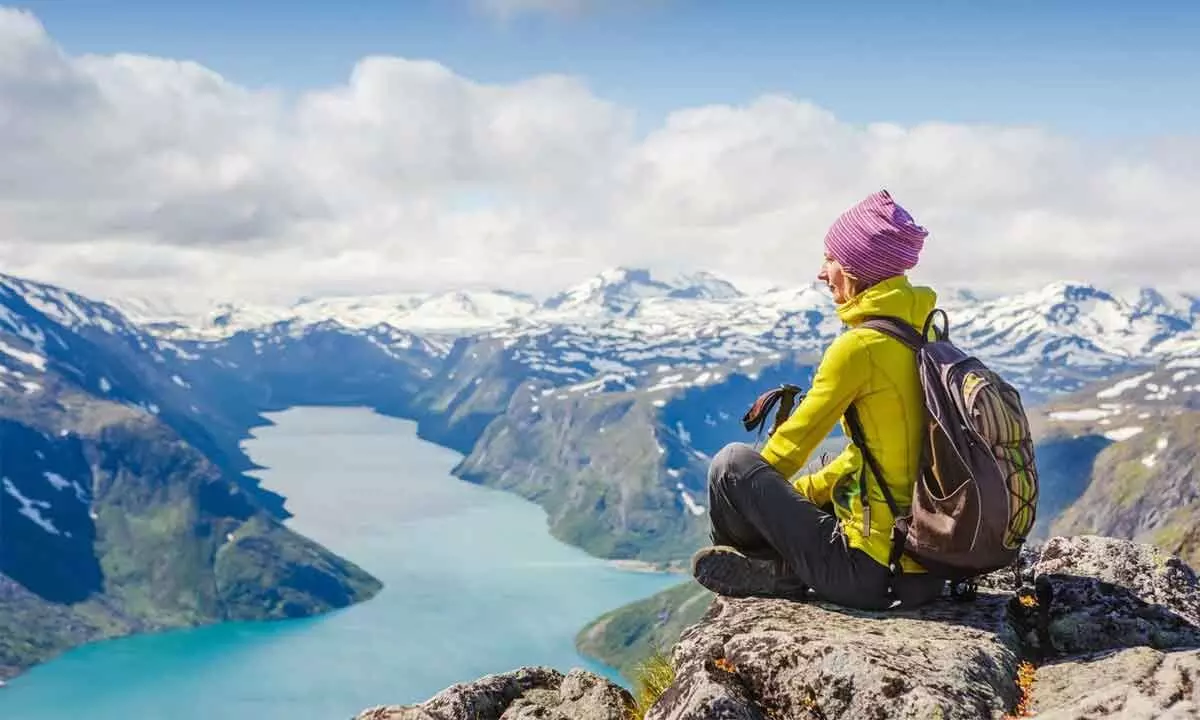How to be a responsible tourist?
To reduce tourism's negative effects on people, the environment, and ourselves, we must shift our focus to more ethical travel
image for illustrative purpose

Tourism is on the rise because the world is full of undiscovered destinations, breathtaking scenery, and wildlife that everyone should see at least once in their lives. In certain cases, growing tourism has a negative impact on neighbouring towns and resources. Furthermore, major movements to protect the planet's health are ongoing, as the repercussions of our continued mistreatment are grave.
Things that were formerly normal while travelling are now unacceptable. It's not necessarily a bad thing! To reduce tourism's negative effects on people, the environment, and ourselves, we must shift our focus to more ethical travel. People are travelling more frequently, farther away, and for longer periods of time. To demonstrate respect for the places they visit, travellers should observe local customs and contribute back to the community. Speaking with Sanjay Wadhawan, Founder and CEO of Earthaa Escapes, he shares his top recommended ways to travel responsibly:
Be careful when engaging in animal activities: Many individuals dream of riding elephants, swimming with dolphins or getting their picture taken with tigers, while making trip arrangements, but these careless activities frequently cause more harm than good, as these gorgeous creatures are brought out of their native habitat for entertainment. It is better to avoid such activities as they injure the animals and are unethical. Hence, one must do their homework and refuse.
Watch your waste: Plastic waste has spread like wildfire in this century. Packing reusable cloth bags, which individuals may use for local shopping, is one of the simplest ways to travel sustainably and prevent adding plastic garbage to the place they visit. It is advised to bring some disposable cutlery and straws while travelling, and use them as needed. Or, individuals can even ask for it at the hotel where they are staying. Moreover, the majority of hotels are currently attempting to eliminate plastic. Visit lesser-known locations: With travelling becoming a quick escape from reality for the majority of individuals, it has become essential to travel responsibly and choose your location wisely. In order to avoid overcrowding a tourist spot, one should concentrate on visiting less well-known sites and places. In fact, a prudent travel recommendation is to avoid crowded regions, especially in the post-Covid-19 world.
Be aware of your carbon footprints: There is no denying the fact that flying is easy and comes with its own set of perks but it also increases carbon emissions. If nothing else, flying a direct flight will cut carbon emissions. In addition, research suggests that taking off and landings are the worst. Therefore, taking the overland route rather than flying is another wise piece of travel advice one should definitely take into account.
Learn about other cultures: One of the most significant benefits of travelling is learning about other cultures and religions. Meeting various people, learning about their customs and traditions, trying their local food, and getting to know about their lifestyle seem fascinating.
Tourism is on the rise, especially in the post Covid era. This increased tourism has led to situations that have harmful effects on the environment. It is always suggested to gather some kind of information about the place they are planning to visit. In fact, most tourism boards have informative websites that are packed with valuable data. There is no denying the fact that travellers are becoming more socially conscious day by day. Thus, by following the simple ways mentioned above, individuals can ensure that their actions are not causing any harm to the environment.

